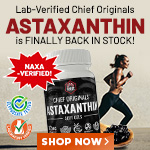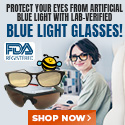
Why Dermatologists Still Deny the Link Between Acne and Diet
Thursday, July 10, 2008 by: Seppo Puusa
Tags: acne, health news, Natural News
- Oncologist warns of ‘terrifyingly aggressive’ cancers in children, linked to immune suppression from COVID vaccines
- NIH study, buried for decades, reveals that Flu Shots INCREASE elderly deaths, not prevent them
- COVID-19 scandal linked to CANCER SURGE: Billionaire researcher sounds alarm
- Musk targets “strangely wealthy” lawmakers in DOGE probe, names Pelosi, McConnell, Schumer
- Ancient kitchen secrets REVEALED: How garlic, ginger and green onions fight cancer and heart disease
- DARPA: The shadowy innovator behind the world’s most advanced military technologies
- Millionaire fitness coach charged in Tesla vandalism incident as anti-Musk attacks escalate
- “Ethically sourced” human “bodyoids” could usher in a new era of medical exploitation, raising disturbing ethical questions
- Newly released JFK files reveal Pentagon's role in creating Lyme disease and covid in the same lab
- European Court of Justice: Healthcare professionals who promoted or administered COVID-19 vaccines are CRIMINALLY LIABLE for any harm caused
- Britain’s descent into police state censorship: Parents raided for questioning their daughter’s school system online
- RFK Jr. is pushing Big Pharma ad ban - and corporate media is panicking
- Tackling the rubber waste crisis: Groundbreaking study reveals eco-friendly method to recycle tires
- Homesteading Boom: How families are escaping cities to grow their own food
- Joseph Farrell’s “The Cosmic War”: Did an interplanetary conflict reshape the solar system?
- NYT admits U.S. ran Ukraine war operations-Russia's victory exposes obsolete NATO tactics, says Mike Adams
- Utah governor allows ban on LGBT pride flags in public buildings and schools, will take effect without his signature
- Civil war is here – Multiple events, from conservatives being “swatted,” to attacks against Telsa owners, happening across America as Dem politicians are telling supporters to ‘fight in the streets”
- Newly released JFK files reveal Pentagon's role in creating Lyme disease and covid in the same lab
- CDC finally halts $11 billion COVID funding scam as health officials admit the ‘pandemic’ was a fraud
- Analysis: The coming economic collapse, a mass uprising and Trump's three secret weapons to halt the growing revolt
- Kiss Your Genetic Privacy Good-Bye! 23andMe Gets Green Light to Sell Your Intimate Genetic Details to Anyone They Want
- Dr. Suzanne Humphries makes bombshell appearance on Joe Rogan podcast, exposing vaccine industry deception back to POLIOMYELITIS
- DEADLY DECEPTION: How COVID vaccines increased mortality rates and why authorities hid the truth
- Woman contracts WORLD'S DEADLIEST VIRUS after unknowingly being given the WRONG VACCINE
- Oncologist warns of ‘terrifyingly aggressive’ cancers in children, linked to immune suppression from COVID vaccines
- Here are TEN all-natural ways to protect your garden without using harmful chemicals
- Black cumin seed oil emerges as a powerful ally against breast cancer and chronic inflammation
- The hidden dangers in your kitchen: How cooking methods impact diabetes, cancer and aging
- Trump's greatest betrayal so far: Accelerating Middle East wars, silencing dissent, and serving Zionist masters
- Senate Democrats deny censorship industrial complex existed, defend government's role in silencing dissent
- Sugar-free deception: Artificial sweeteners hijack hunger signals, fuel obesity epidemic, study warns
- “Independent” anti-Russia outlet MEDUZA faces COLLAPSE as US funding dries up
- NIH study, buried for decades, reveals that Flu Shots INCREASE elderly deaths, not prevent them
- The Health Ranger releases “Vaccine Zombie” song and music video, using AI-animated zombies for the music video
- Discovery of vast underground city beneath Giza pyramids challenges human history
- Newly released JFK files reveal Pentagon's role in creating Lyme disease and covid in the same lab
- California's social media censorship law struck down: A victory for free speech or a threat to online safety?
- EPA advisor admits the agency is funneling billions to climate groups ahead of Trump’s return to White House
- The Health Ranger releases “Vaccine Zombie” song and music video, using AI-animated zombies for the music video
- Dr. Mike Yeadon releases 15-minute testimony - WATCH - about genocidal intent of COVID “vaccines”
- Florida takes a stand: DeSantis proposes permanent ban on mRNA vaccine mandates
- Mike Adams releases country western hit single: Goin’ Back in Time is Comin’ Home
- “Why we influenced the 2020 elections”: Facebook files reveal the coordinated effort to bury the Hunter Biden laptop story
- Unpacking the Lies That We’ve Been Fed – new song and music video released by Mike Adams, the Health Ranger
- House Intelligence Committee calls for the ARREST and PROSECUTION of Dr. Anthony Fauci
- The pandemic as a tool for INDOCTRINATION: Understanding “The Indoctrinated Brain” by Dr. Michael Nehls
- Rep. Nancy Mace introduces bill to ban biological males from female facilities on federal property
- Mike Adams releases music poetry sensation: A Child of God
- Sugarcane extract superior to cholesterol-lowering drugs?
- Survival 101: Effective EMF blocking techniques
- Michigan sheriff announces criminal investigation into 2020 election crimes, Dominion Voting Systems
- Peter Rost exposes Big Pharma corruption in his book “The Whistleblower: Confessions of a Healthcare Hitman”
- Migrants are taking advantage of recent hurricanes to scam residents and loot their homes
- Red Cross issues warning to stop blood plasma donations from vaccinated people
- Scientists confirm: GENIUS brain function can be spontaneously unleashed in humans without any apparent cause
- EPA advisor admits the agency is funneling billions to climate groups ahead of Trump’s return to White House
- HYSSOP: What research reveals about the health benefits of this ancient holy herb
- Two containers with completed ballots fall out of truck in Florida
- Fully vaccinated about to see “tsunami” of illness and death, warns virologist
- Global leaders unite to clamp down on “misinformation” with UN-backed Cascais Declaration
- BREAKING: 2025 NDAA authorizes mandatory military draft of WOMEN across America… as Pentagon pursues global NUCLEAR war with both Russia and China at the same time
- Michael Yon warns of a ZIONIST TAKEOVER in Trump’s second administration
- BOMBSHELL: DNA testing kits are a SCAM to develop ethnic-specific bioweapons
- Ozempic and Wegovy weight loss drugs are injectable LIZARD VENOM PEPTIDES that may unleash a devastating wave of organ failure… side effects align with symptoms of SNAKE BITES
- Israeli soldiers accused of even more torture and abuse in the West Bank
- These 13 countries just signed an agreement to engineer a global FAMINE by destroying food supply
- NASA admits that climate change occurs because of changes in Earth’s solar orbit, and NOT because of SUVs and fossil fuels
- RFK Jr. clears key hurdle: Sen. Susan Collins backs controversial HHS nominee, signaling a new era for health policy
- Sermon 30: How Jesus reveals Caesar’s FAKE CURRENCY and FALSE AUTHORITY
- Coriander seeds: Ancient medicine backed by modern science
- Arizona officials claim Maricopa County needs 10-13 days to tabulate results of the election
It turns out that the notion 'diet has nothing to do with acne' is just about as scientific as the notion 'the world is flat'. In other words, it's pure dogma with no credible scientific backing.
Let's take a look at how and why this started.
The two flawed studies that started it all
In the fifties and sixties, dermatologists advised their patients about diet and its role in acne. Two studies conducted in the late sixties and early seventies changed that.
Later those two studies came under heavy fire. They were so flawed that they would earn a high school science student an F.
For example, one study conducted by the University of Pennsylvania School of Medicine looked into the link between chocolate and acne. First, the study was funded by the Chocolate Manufacturers Association. Second, the study compared two candy bars; both equally high in sugar, calories and trans fats, but the other had some chocolate in it. This is comparing sugar to sugar. The sugar and trans fats have much more of an effect on acne than the small quantity of chocolate in the other bar. No wonder the study concluded chocolate does not cause acne.
The other one was an equally flawed study about sugar and acne. The sample size was small, and it didn't consider the glycemic effect of processed carbohydrates. Again this study proved nothing.
Despite the flaws and scientific invalidity, the results of these two studies stuck. Since then medical students have been taught there's no scientific link between diet and acne.
In Western society, we hold doctors in high-esteem. We trust them to know and give us advice that is based on scientific evidence. After all, Western medicine goes all hoopla about science and how it's evidence based.
Doctors and patients are equally ignorant about nutrition
But when it comes to diet and nutrition this is almost never the case. Here's a quote from a study published in the American Journal of Clinical Nutrition.
"Patients may rely on physicians to provide them with nutrition information. And physicians should be more knowledgeable about nutrition than their patients, but these results suggest that this is not necessarily true."
K Lazarus, RL Weinsier, and JR Boker
Nutrition knowledge and practices of physicians in a family-practice residency program: the effect of an education program provided by a physician nutrition specialist
The study found you are not much better off getting nutritional guidance from a doctor than you are from the average McDonald's patron.
Until 2002 those two were the only published studies on diet and acne.
The acne diet dogma - just one among many
As you can see, the notion diet has nothing to do with acne is not based on science. It's a dogma.
Unfortunately the medical community is almost as dogmatic as the Catholic Church was in the middle ages.
"Dover tells the story of an early 1970s paper stating ultraviolet light doesn't improve acne, a belief that held for decades." "It turns out that the paper was wrong," he says. "This is an example of dogma getting in the way of progress in science and medicine. It happens all the time. Someone really important proves something and says this is the way it is, and everybody else stops thinking. It takes about 30 years, usually a generation, until someone says, 'Wait, this can't be true.'"
A Clear Connection? Most dermatologists tell their patients diet plays no role in acne. New research suggests that's wrong.
New studies link diet and acne
Luckily for acne victims the tide is turning. In recent years, a few well controlled studies have pointed towards a link between diet and acne.
One study found a correlation between dairy and acne. Another one looked into and found that foods high on the glycemic index increase acne. Finally one population-based study found acne is mainly a disease of the Western civilization. The study concluded the most likely explanation is a Western diet high in sugar, fat and processed foods.
Still, don't expect your dermatologist to start giving you dietary advice anytime soon. The official party line remains -- there is no link between diet and acne.
Dermatologists play it safe when they say food doesn't cause acne
"Dr. Jack Krushell, chief of dermatology at Harvard Vanguard Medical Associates, says the food hypothesis is intriguing but "I still kind of follow the party line, which is that food doesn't seem to be a cause of acne.""
A Clear Connection? Most dermatologists tell their patients diet plays no role in acne. New research suggests that's wrong.
For most dermatologists, who are swamped with patients and can't keep up with the latest journals, following the party line is a safe and easy solution. For better or worse the medical community is conservative and slow to change. Going against the grain can kill your career.
Health is a holistic system
To make things worse the medical community likes simple and linear solutions. Such as, bacteria cause acne; kill the bacteria and you can cure acne.
Unfortunately things work differently in nature.
Health, and by extension clear skin, is a holistic system. Meaning one part (such as diet or sleep) affects and is affected by every other part. In such a system, you cannot pull out one part and say "this is it. This is the cause".
In a weird way dermatologists are right in some regards. Diet is a big part of the equation that leads to acne (or clear skin), but it's not the only part. And to say diet causes acne is wrong.
Your skin is a part of your body. Anything that affects the health of your body also affects the health of your skin. Therefore to find the cause (or cure) for acne, you have to take a holistic perspective and look at your entire lifestyle.
So the next time a dermatologist tells you that you can eat whatever you want, or that acne cannot be cured, don't take it to the bank. Those two notions are not based on science. They are dogmas that the dermatologists have been taught at medical school.
Get a second opinion. Preferably from someone outside the traditional medical community.
Curing acne is simple
Acne can be cured with diet and lifestyle changes. Millions of people have done it. You can do it too.
There's nothing strange or mysterious about curing acne. It is as simple and straightforward as losing weight.
One of the first things you probably 'learned' about acne is that it cannot be cured. You bought into that belief and it has kept you from finding solutions that can really help.
Get rid of that belief and open your eyes. You'll see the road to clear skin is both simple and painfully obvious.
About the author
Seppo Puusa is the author of the best-selling acne book Clear for Life: Lifestyle for Health, Happiness and Clear Skin. The book gives a whole new perspective on acne, so it will finally make sense.Clear for Life shows how the small, everyday choices you make today affect the way your skin looks tomorrow. By consistently making the right choices you engage the body's self-healing powers that can reverse the conditions behind acne. And overtime, acne just fades away.
Clear for Life is not a quick fix, or even a 30-day miracle, but for people who are willing to take responsibility for their own future it offers a simple, clear and makes-sense-in-your-gut solution to permanently clear skin.
To learn more about Clear for Life, please visit: http://www.clear-for-life.com.
Seppo also has other websites, such as Proactiv Solution Info Center with hype free reviews and information about Proactiv, and Exposed Acne Treatment site at ExposedAcneTreatmentInfo.com.
Acne at FETCH.news
Get independent news alerts on natural cures, food lab tests, cannabis medicine, science, robotics, drones, privacy and more.
Take Action: Support Natural News by linking to this article from your website
Permalink to this article:
Embed article link: (copy HTML code below):
Reprinting this article:
Non-commercial use OK, cite NaturalNews.com with clickable link.
Follow Natural News on Facebook, Twitter, Google Plus, and Pinterest
Science News & Studies
Medicine News and Information
Food News & Studies
Health News & Studies
Herbs News & Information
Pollution News & Studies
Cancer News & Studies
Climate News & Studies
Survival News & Information
Gear News & Information
News covering technology, stocks, hackers, and more



"Big Tech and mainstream media are constantly trying to silence the independent voices that dare to bring you the truth about toxic food ingredients, dangerous medications and the failed, fraudulent science of the profit-driven medical establishment.
Email is one of the best ways to make sure you stay informed, without the censorship of the tech giants (Google, Apple, Facebook, Twitter, YouTube, etc.). Stay informed and you'll even likely learn information that may help save your own life."
–The Health Ranger, Mike Adams












































